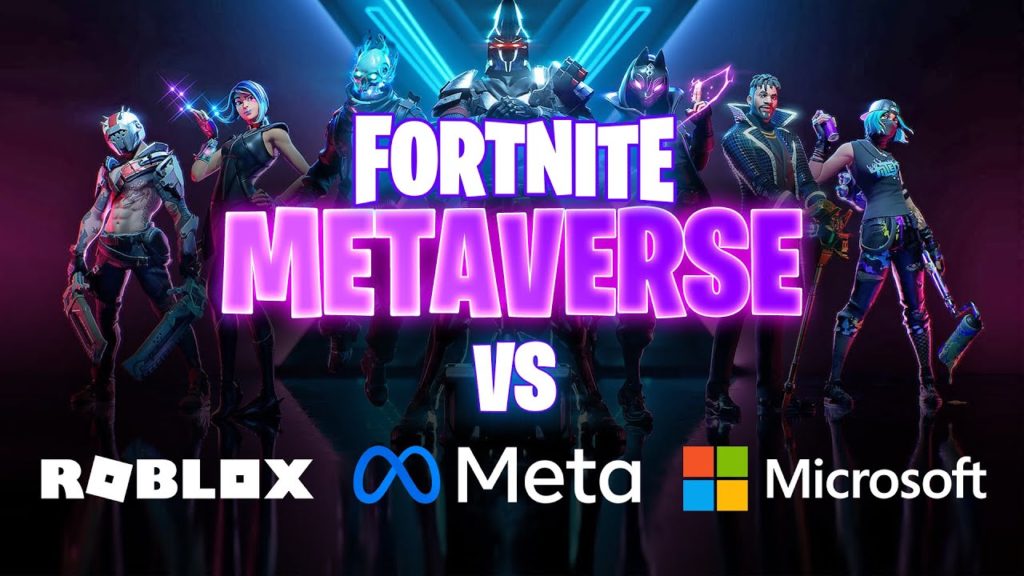Last year, Facebook changed its company name to Meta, reflecting its ambition to grow beyond social media and describing its vision for a virtual world, known in sci-fi circles as the metaverse. You may have heard people talking about the metaverse — or the new buzzword, Web 3.0 — and wondered what it all means.
What is the metaverse — and what is Web 3.0?
In the most simplistic terms, the metaverse is the next evolution of the internet in which users are immersed and virtually present thanks to technologies like virtual reality and augmented reality. And as Wired magazine describes, the metaverse also can translate to a digital economy in which users can create, buy and sell goods.
During its early days in the 1990s, the internet (Web 1.0) was designed as a way to democratize access to information. Because there was no great way to navigate the vast amounts of data, it became overwhelming and unorganized. Then came Web 2.0 in the 2000s. Google, Amazon, Facebook and Twitter emerged to bring order to the Internet, making it easier to interact, connect and transact online. Social media applications took off, and the larger companies became even more powerful.
Web 3.0 is anticipated to be a decentralized version of the internet in which people — not companies — have control over data. Web 3.0 is being built on blockchain technology. As we have written before, blockchain is an electronic ledger that provides a digital record without a central authority. Blockchain is the technology behind many cryptocurrencies and non-fungible tokens (NFTs). Using blockchain provides the possibility of peer-to-peer services with no single authority, which gives users control over the data.
Where did this idea come from?
Sci-fi author Neal Stephenson first described the metaverse in his 1992 novel Snow Crush. In this work of fiction, he envisions people using lifelike avatars to meet in an online world, often in realistic-looking buildings and other virtual-reality environments. Since then, various innovations have paved a path toward an actual metaverse, an online virtual world that incorporates augmented reality, virtual reality, 3D holographic avatars, video and other means of communication.

In the future, experts believe, the metaverse will feature a decentralized, open architecture platform to be accessed by virtual reality headsets and powered by blockchain. One will be able to work, play video games, buy digital items, socialize with friends, consume media and even attend events in the metaverse. Mark Zuckerberg describes it as “a virtual environment where you can be present with other people in digital spaces.” Early versions exist today; in fact, rap artist Travis Scott held a concert in the metaverse after the pandemic began.
Online game platforms like Fortnite (owned by Epic Games), Minecraft (owned by Microsoft) and Roblox provide insight into this new virtual universe. Facebook, Microsoft, Roblox and Nvidia are staking early claims to this new digital world. This week, Microsoft announced the massive acquisition of Activision Blizzard, an attempt to build out Web 3.0. While no one company owns the metaverse — just like no one owns the internet — there will be many important players in the space, putting billions of dollars to work over the next several years.

So, what can we learn from all this? The metaverse is still in its very early days, but the infrastructure is being built. Social attitudes and norms are changing and adapting to the new era of the internet.
It will take many years for the metaverse to be fully formed and for the experiences to become part of the daily world. However, it appears the train has left the station, with social media and video game companies leveraging their large user bases to build the foundation of the metaverse.
From a portfolio perspective, we continue to adhere to the tried-and-true disciplines of diversification, periodic rebalancing and looking forward, while not making investment decisions based on where we have been. Making market decisions based on what might happen may be detrimental to long-term performance. The key is to stay invested and stick with the financial plan. Markets go up and down over time, and downturns present opportunities to purchase stocks at a lower value. As we say each week, it is important to stay the course and focus on the long-term goal, not on one specific data point or indicator.
It all starts with a solid financial plan for the long run that understands the level of risk that is acceptable for each client. Regarding investments, we believe in diversification and in having different asset classes that allow you to stay invested. The best option is to stick with a broadly diversified portfolio that can help you to achieve your own specific financial goals — regardless of market volatility. Long-term fundamentals are what matter.
Sources: Fortune, Seeking Alpha, USA Today, Wired
This material contains an assessment of the market and economic environment at a specific point in time and is not intended to be a forecast of future events, or a guarantee of future results. Forward-looking statements are subject to certain risks and uncertainties. Actual results, performance, or achievements may differ materially from those expressed or implied. Information is based on data gathered from what we believe are reliable sources.
Using diversification as part of your investment strategy neither assures nor guarantees better performance and cannot protect against loss of principal due to changing market conditions.
Past performance is not a guarantee of future results.
The opinions expressed in this commentary are those of the author and may not necessarily reflect those held by Kestra Investment Services, LLC or Kestra Advisory Services, LLC. This is for general information only and is not intended to provide specific investment advice or recommendations for any individual. It is suggested that you consult your financial professional, attorney, or tax advisor with regard to your individual situation.
Securities offered through Kestra Investment Services, LLC (Kestra IS), member FINRA/SIPC. Investment Advisory Services offered through Kestra Advisory Services, LLC (Kestra AS) an affiliate of Kestra IS. Kestra IS and Kestra AS are not affiliated with CD Wealth Management. Investor Disclosures: https://bit.ly/KF-Disclosures





